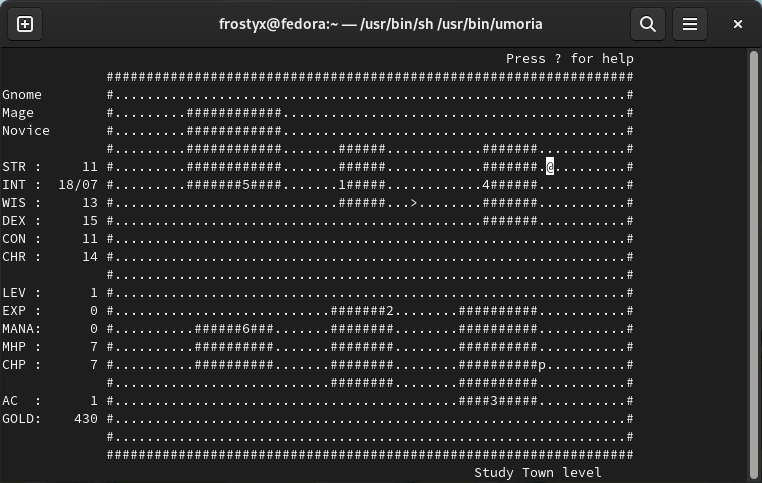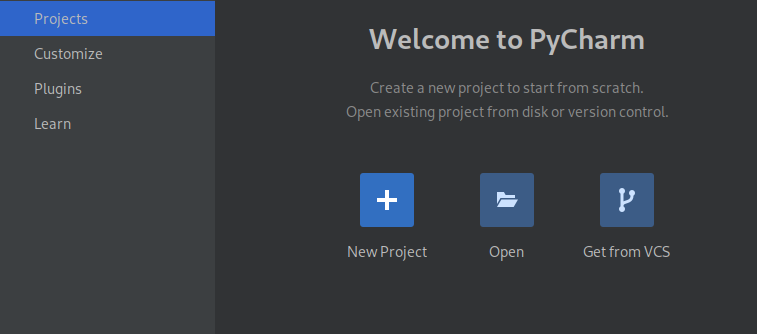This article introduces four new projects available in Copr, with installation instructions.
Copr is a build-system for anyone in the Fedora community. It hosts thousands of projects for various purposes and audiences. Some of them should never be installed by anyone, some are already being transitioned to the official Fedora Linux repositories, and the rest are somewhere in between. Copr gives you the opportunity to install 3rd party software that is not available in Fedora Linux repositories, try nightly versions of your dependencies, use patched builds of your favorite tools to support some non-standard use-cases, and just experiment freely.
If you don’t know how to enable a repository or if you are concerned about whether it is safe to use Copr, please consult the project documentation.
This article takes a closer look at interesting projects that recently landed in Copr.
Sticky
Do you always forget your passwords, write them on sticky notes and post them all around your monitor? Well, please don’t use Sticky for that. But it is a great note-taking application with support for checklists, text formatting, spell-checking, backups, and so on. It also supports adjusting note visibility and organizing notes into groups.

Installation instructions
The repo currently provides Sticky for Fedora 36, 37, 38, and Fedora Rawhide. To install it, use these commands:
sudo dnf copr enable a-random-linux-lover/sticky sudo dnf install sticky
Webapp-manager
Generations of programmers spent over three decades creating, improving, and re-inventing window managers for us to disregard all of that, and live inside of a web browser with dozens of tabs. Webapp-manager allows you to run websites as if they were applications, and return to the previous paradigm.

Installation instructions
The repo currently provides webapp-manager for Fedora 36, 37, 38, and Fedora Rawhide. To install it, use these commands:
sudo dnf copr enable kylegospo/webapp-manager sudo dnf install webapp-manager
Umoria
Umoria (The Dungeons of Moria) is a single-player dungeon crawl game inspired by J. R. R. Tolkien’s novel The Lord of the Rings. It is considered to be the first roguelike game ever created. A player begins their epic adventure by acquiring weapons and supplies in the town level and then descends to the dungeons to face the evil that lurks beneath.

Installation instructions
The repo currently provides Umoria for Fedora 36, 37, 38, and Fedora Rawhide. To install it, use these commands:
sudo dnf copr enable whitehara/umoria sudo dnf install umoria
PyCharm
JetBrains PyCharm is a popular IDE for the Python programming language. It provides intelligent code completion, on-the-fly error checking, quick fixes, and much more. The phracek/PyCharm repository is a great example of a well-maintained project that lives in Copr and has for a long time. Created eight years ago for Fedora 20, it provided support for every subsequent Fedora release. It is now a part of the Third-Party Repositories that can be opted into during the Fedora installation.

Installation instructions
The repo currently provides PyCharm for Fedora 36, 37, 38, Fedora Rawhide, EPEL 7, 8, and 9. To install it, use these commands:
sudo dnf copr enable phracek/PyCharm sudo dnf install pycharm-community






Kristof
Nice!
For the Sticky, is it possible to run that in the background and hide it from the Gnome dash in Fedora?
Jakub Kadlčík
I am looking into the Preferences window and there are “Show in taskbar” and “Tray icons” options but on Gnome, it seems that they have no effect. I’d suggest discussing it with upstream https://github.com/linuxmint/sticky/
Frederico Tavares
Hello, thanks for sharing!
I was looking for something like Webapp-manager today, I tried Rambox but it consumes too many resources.
Keep up the good work!
Regards
Bill Chatfield
— “Generations of programmers spent over three decades creating, improving, and re-inventing window managers for us to disregard all of that, and live inside of a web browser with dozens of tabs. ”
Hahahaha. That so funny and so true! I love it! Thank you so much for that bit of wisdom. 😀
Jakub Kadlčík
I must admit, I was giggling myself 😀
Anthony
That bit about web browsers is for real. Even before I gave computers a second thought, I knew that using a web browser for “desktop app tasks” was kinda tacky.
lemc
In scientific research, one key software is a reference manager, which organizes a library of bibliographic citations and helps using them in reports, manuscripts, thesis, etc. There is an excellent FOSS reference manager named Zotero, which is widely used in such institutions as MIT, Harvard Univ., Cambridge Univ., Stanford Univ., and UCLA, among others. At the Zotero website, there is an installer for Windows, while for Linux there is only a tarball. The latter works, but it is unwieldy for less technical people, and we have to install it at the home directory.
I use Fedora as my main OS both at home and at the academia, where apps such as the R statistical package, ImageJ, and Gimp are critically important tools. They are all in the official Fedora repository, so installing, running, and updating them is very easy. So it would be wonderful if there were a Zotero package in the official Fedora repository too. There is a Zotero package in COPR, but it is slightly outdated. Thus, if Zotero is not among those COPR packages that “are already being transitioned to the official Fedora Linux repositories”, I wholeheartedly suggest that this should be carried out.
I apologize if this is not the right place for making such a request.
Gregory Bartholomew
FWIW, someone was going to write a Fedora Magazine article that would include some information about Zotero. But they seem to have gone AWOL.
https://discussion.fedoraproject.org/t/the-current-state-of-social-science-research-on-fedora/41566
Steve
There is an easy to install snap package you might want to try
https://snapcraft.io/install/zotero-snap/fedora
Jakub Kadlčík
I found this Copr project
https://copr.fedorainfracloud.org/coprs/pgaskin/zotero/
which seems to be quite up-to-date (6.0.13 while on GitHub there is 6.0.20).
You can reach out to the project owner and ask if there is any ambition to get it to the official Fedora repositories (feel free to ping me for a package review).
For the record, there is also a flatpak
https://flathub.org/apps/details/org.zotero.Zotero
lemc
I tried to contact the maintainer of the Zotero package in COPR, to suggest a move of the package to the official repositories, but did not get any reply.
This is unfortunate. The Fedora official repositories include many and highly specialized scientific programs, such as the recently-added lammps-20220623.3-1.fc37, which stands for “Large-scale Atomic/Molecular Massively Parallel Simulator”, which would be used by a more narrow group of chemists/physicists. I myself use ImageJ, which is designed primarily for the analysis of medical images.
This is all fantastic, and clearly turns Fedora into a very suitable platform for various scientific/academic environments. Yet the Zotero reference manager, which would be used by virtually all people in these environments, much like LibreOffice, is absent from the official repositories…
lemc
Thanks for all the suggestions and tips! Like I said, the official Zotero tarball works, but it is not fully integrated into the Fedora/Gnome environment, as a native Fedora RPM would be. As for the other packages, I will give them a try, even though at the Zotero website they warn that “third-party packages [for Linux] may be sandboxed, breaking various functionalities”. I will also follow Jakub Kadlčík’s suggestion and try to reach the owner of the Zotero project in COPR. This powerful and widely used reference manager would be a great addition to the official Fedora repositories! Meanwhile, I’ll try the Zotero package in COPR.
lemc
All these other reference managers should be efficient and highly regarded in certain areas. In the biomedical/health sciences, the most widely used reference manager is actually a commercial one. But because of its similarity and interoperability with this commercial software, Zotero is, as far as I know, the best FOSS alternative.
PaperMill
There are many reference managers, https://en.wikipedia.org/wiki/Comparison_of_reference_management_software
In addition to Zotero on Copr https://copr.fedorainfracloud.org/coprs/pgaskin/zotero/ one biblioraphy management packages in the official repositories is https://packages.fedoraproject.org/pkgs/kbibtex/kbibtex/
PaperMill
JabRef is also on Copr for CentOS https://copr.fedorainfracloud.org/coprs/koppor/JabRef/